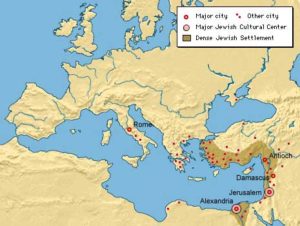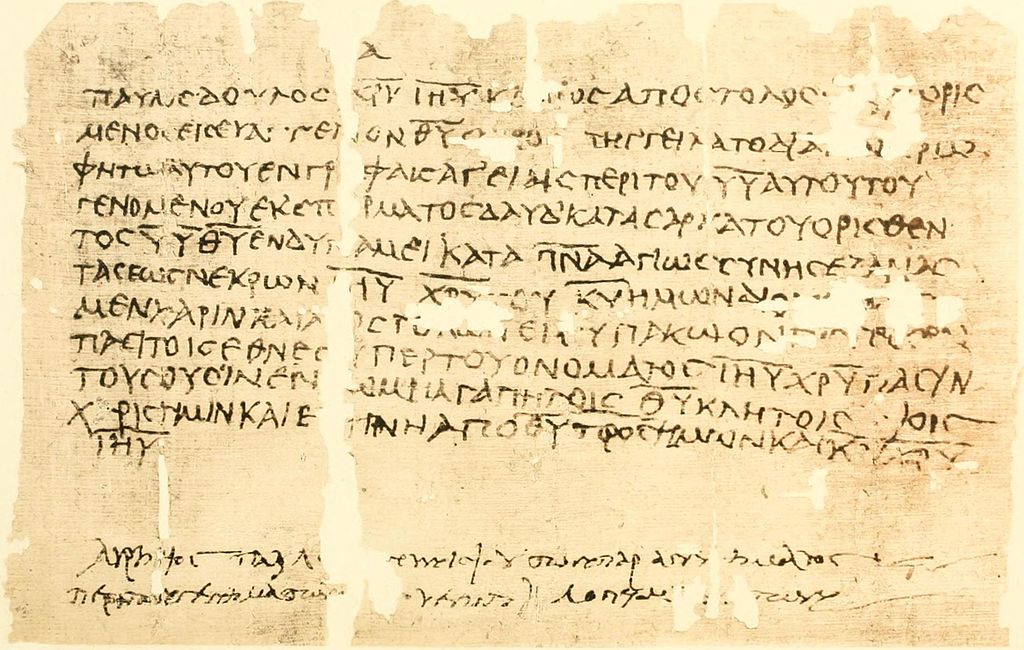The Council of Jerusalem has come to a decision. They will write an epistle of instruction to the gentile churches.
Let's focus for a moment on a HOT TOPIC of A.D. 50 on which future missions of the apostles hinged. (HOW will JEWS worship with other CULTURES?) Church leaders ANSWERED with an EPISTLE from their Council in Jerusalem.
ἐπιστολή – a written message: — epistle, letter
So when they were dismissed, they came to Antioch: and when they had gathered the multitude together, they delivered the epistle: G1992
Acts of the Apostles 15:30, King James Version
WHAT DO WE DO WHEN AS SOON AS WE MAKE AN IMPORTANT DECISION IMPACTING EVERYONE?
We send out an epistle or letter or message or broadcast.
AND like any council with authority this council of Church leaders in Jerusalem go back to their followers personally as well. These apostles of the gospel will also send their epistle or letter of instruction with other trusted messengers to churches they cannot encourage personally.
We're getting a little ahead of today's work of the Jerusalem Council, but I thought it important to DEFINE our term and impact of today's meeting of the Apostles in Jerusalem.
Lexicon :: Strong’s G1992 – epistolē
– From ἐπιστέλλω (G1989) epistellō –
Outline of Biblical Usage
- to send one a message, command
- to write a letter
- to enjoin by letter, to write instructions
Christians familiar with traditional readings of Scripture from the King James Version recognize an introduction like:
“A reading from the Epistle of Paul to the Romans.”
The cover letter pictured is an actual parchment of Romans 1:1-7
Acts of the Apostles 15:30 [above] reads ‘epistle‘ in the KJV.
But most Bibles simply translate it ‘letter.’
You may have seen a similar epistle in Acts 9 where Luke records a previous ‘official letter’ also sent with Paul (aka at that time Saul of Tarsus) from Jerusalem.
– Acts of the Apostles 9:1-2 ESV
Christians familiar with the epistles or letters of the New Testament (after Acts) see epistles addressed to an individual church, i.e. Corinth, Ephesus, where these letters were also circulated to churches throughout and beyond those regions.
However this important earlier letter from the Council at Jerusalem was sent to as many churches as possible. And the Apostles gathered in Jerusalem specifically address Gentiles as participants and members.
SO It could have, but was not, named:
The Epistle of the Council of Jerusalem,
TO the Church at Antioch Syria (where it is to be sent) OR due to apostles sent out into all the world:
‘TO the churches of the Gentile Nations.’
Leaders of the Christians in Antioch had requested clarification from the Apostles and leaders of the church in Jerusalem. Most Hellenist or Greek church members were Gentiles rather than Jews of the Diaspora.
Acts 15 – Conclusion of Pastor James
Do not trouble those turning to God
.. we should not trouble those of the Gentiles who turn to God,
Acts 15:19b-20 ESV
but should write to them
to abstain from the things polluted by idols, and from sexual immorality, and from what has been strangled, and from blood.
Don’t cause trouble. Do not annoy. Do not harass.
You get the idea; this is what Saul of Tarsus had planned to do in Damascus with the authority of the Jewish Council to persecute the converted.
ἐπιστρέφω – Lexicon :: Strong’s G1994 – epistrephō
transitively, a. to turn to the worship of the true God, b. to cause to return, to bring back; figuratively, to the love and obedience of God ..
Therefore it is my judgment that we do not trouble those who are turning to God [theos] from among the Gentiles ἔθνος [ethnos].
YES, God chose the Jews
BUT why would we want to keep those Gentiles whom the Lord our God has drawn through Christ?
AND WHY add requirements which would hinder Gentiles from turning to God?
SO James adjudicates the matter also addressing the concerns of the Jews.
EXCEPT these practices of Jewish Law
Here, James adds a requirement for the Gentiles but it is NOT circumcision.
- abstain from
- the things polluted by idols
- sexual immorality
- what has been strangled
- [from] blood
21 For from ancient generations Moses has had in every city those who proclaim him, for he is read every Sabbath in the synagogues.”

A Map [above] shows first century Jewish cities of the Roman Empire to which James refers in an epistle he authored most likely during Paul’s first missionary journey just prior to the Council at Jerusalem.
As you can see, much more communication will be required to cover so many Hellenist cities with Jewish and Christian worshipers.
Acts 15:20 King James Version — But that we write unto them, that they abstain from pollutions of idols, and from fornication, and from things strangled, and from blood.
Scriptural (Old Testament) Reasons for James’ exceptions
Pollutions of idols
– Gen 35:2; Exo 20:3-5,23; Exo 34:15,16; Num 25:2; Psa 106:37-39; Eze 20:30,31;
“Therefore say to the house of Israel, Thus says the Lord GOD: Will you defile yourselves after the manner of your fathers and go whoring after their detestable things? When you present your gifts and offer up your children in fire, you defile yourselves with all your idols to this day. And shall I *be inquired of by you, O house of Israel? As I live, declares the Lord GOD, I will not *be inquired of by you.
Ezra 20:30-31 KJV – *note: Lexicon :: Strong’s H1875 – dāraš
Fornication – πορνεία – Lexicon :: Strong’s G4202 – porneia –
- illicit sexual intercourse
- adultery, fornication, homosexuality, lesbianism, intercourse with animals etc.
- sexual intercourse with close relatives; Lev. 18
- sexual intercourse with a divorced man or woman; Mk. 10:11-12
- metaph. the worship of idols
- of the defilement of idolatry, as incurred by eating the sacrifices offered to idols
The beginning of the word of the LORD by Hosea. And the LORD said to Hosea, Go, take unto thee a wife of *whoredoms and children of *whoredoms: for the land hath committed great *whoredom, departing from the LORD.
Hosea 1:2 KJV note: *Lexicon :: Strong’s H2183 – zᵊnûnîm
from Lexicon :: Strong’s H2181 – zānâ – A primitive root [highly-fed and therefore wanton]
Things Strangled – πνικτός pniktós, pnik-tos’
from G4155; throttled, i.e. (neuter concretely) an animal choked to death (not bled):—strangled.
and Blood – αἵματος – αἷμα Lexicon :: Strong’s G129 – haima of man or animals
καὶ τοῦ αἵματος - "from what has been strangled, and from blood." - ESV is best understood in the context of Leviticus, Book of the Priests, which provides some detail about Sacrifices to God, which Christ became by His own Blood, the flesh of our Lord Jesus pierced for our transgressions.
The Sacrifice of Blood
Leviticus 17: ESV
וַיִּקְרָא (Leviticus) 17 :: Westminster Leningrad Codex (WLC)
וַיְדַבֵּר יְהוָה אֶל־מֹשֶׁה לֵּאמֹֽר׃
1. And the LORD spoke to Moses, saying,
10 “If any one of the house of Israel or of the strangers who sojourn among them eats any blood, I will set my face against that person who eats blood and will cut him off from among his people.
For the life of the flesh is in the blood, and I have given it for you on the altar to make atonement for your souls,
Leviticus 17:11 ESV
for it is the blood that makes atonement by the life.
12 Therefore I have said to the people of Israel, No person among you shall eat blood, neither shall any stranger who sojourns among you eat blood.
13 “Any one also of the people of Israel, or of the strangers who sojourn among them, who takes in hunting any beast or bird that may be eaten shall pour out its blood and cover it with earth.
For the life of every creature is its blood: its blood is its life. Therefore I have said to the people of Israel, You shall not eat the blood of any creature, for the life of every creature is its blood. Whoever eats it shall be cut off.
Leviticus 17:14 ESV
Letter from the Council
Acts 15:
22 Then it seemed good to the apostles and the elders, with the whole church, to choose men from among them and send them to Antioch with Paul and Barnabas…
To Be Continued…
.. with the text of their Epistle authorizing apostles for another mission to the Gentiles.


Leave a Reply